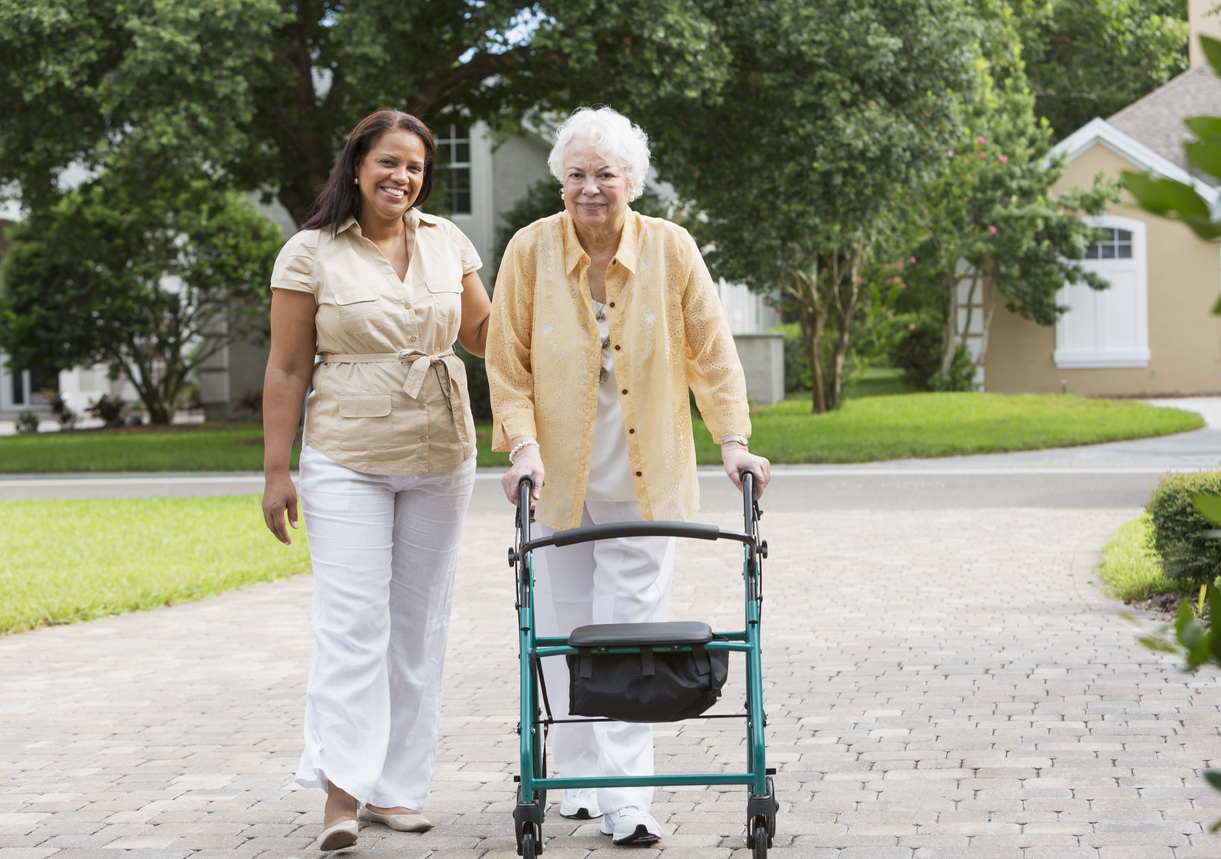Caregiving for elderly parents can be challenging on many levels: emotionally, physically, and often financially. If you are a caregiver for an elderly parent, you are not alone: the Family Caregiver Alliance estimates that 34.2 million Americans provided unpaid care for someone 50 or older within the last twelve months.
And while adult children may be grateful for the opportunity to give back to the parents who cared for them, they may not be able to manage their parent’s care all on their own. Work, health issues, and other family obligations make it difficult for many people to provide all the care an aging parent needs. Plenty of others live far enough away that they are “long-distance caregivers,” without the ability to provide the hands-on, day-in, day-out care that a parent needs.
As a result, many people need to find a caregiver for an elderly parent. Here’s some guidance on how to find a caregiver to meet your older parent’s needs.
What is a Caregiver?
What exactly do we mean when we say “caregiver?” Paid caregivers are also often referred to as “home health aides” or “home care aides.” The amount of training required varies from state to state. In Michigan, it is not necessary to have training or any particular qualifications to work as a paid caregiver. However, caregivers or home health aides who work for a Medicare/Medicaid-certified agency must complete 75 hours of training and 16 hours of practical work.
Caregivers help people who are elderly, disabled, ill, or injured and cannot fully manage the activities of daily living (ADLs). ADLs include feeding, bathing, toileting, dressing, and transferring (from bed to chair or wheelchair, for example). Many paid caregivers also provide other types of assistance such as help with medications, light housekeeping, meal preparation, and transportation.
Paid caregivers help seniors by supporting them in remaining safely in their homes when they might otherwise need care in a facility. But caregiving for elderly parents also provides a valuable service to family members. A trusted aide not only relieves family members of the work of caregiving, but also allows them to relate to their elderly loved ones again as family members, not as service providers. That promotes the health of family relationships and can make everyone feel better.
Finding a Caregiver for an Elderly Parent
The oldest Baby Boomers are now in their seventies, and as that generation continues to age, it’s likely that more and more people will need a caregiver. At the same time, the aftermath of the COVID pandemic and current low unemployment may mean that fewer people are seeking work as caregivers. That can make finding a caregiver for an elderly parent more difficult. If you are seeking someone to help care for your loved one, you may be feeling increasingly desperate as you look for someone who is a good fit—but that doesn’t mean that you should settle for substandard care.
Most paid caregivers are dedicated, honest, reliable workers whose services enrich their clients’ later years. But family members are wise to be selective about who will be caregiving for elderly parents. Elder physical abuse and financial exploitation are real dangers. Older people who depend upon an aide for help with their daily needs are vulnerable; those with Alzheimer’s or other dementias may be even more at risk. Family members are frequently in the best position to choose who has access to them and their home.
Three Options for Finding a Caregiver for an Elderly Parent
Often, the best place to start when looking for a caregiver is with a referral. It’s likely that you know someone else with a parent who needs care, so ask them for their experience. A friend or acquaintance has no vested interest in whether you work with a particular agency or aide, so you are likely to get a straightforward opinion. If their caregiver has availability, they may be able to work for your parent as well. If not, the aide might be able to recommend a trusted colleague.
If your elderly parent lives in Michigan, they may also be eligible for home care and other services through the Michigan PACE program. PACE stands for “Program of All-inclusive Care for the Elderly. The program is designed to help seniors remain independent and safe in their homes for as long as possible. Among other services, PACE also provides adult day care and medical services at various program locations throughout the state. You can learn more about PACE by speaking with a Michigan elder law attorney.
Another option for hiring a caregiver for an elderly parent is to use a private home care agency. You have probably seen advertisements on TV for these agencies. Hiring through an agency is often more expensive, but it does offer some advantages over hiring an independent caregiver. If you hire an independent caregiver, you may be left without help if they call in sick or simply don’t show up. An agency that works with many aides can send someone else, avoiding the scramble to find care. An agency can help you easily increase the level of care your parent receives as their needs evolve.
Another benefit of working with an agency is that agencies have a system for screening and vetting prospective employees, meaning that a caregiver you hire through an agency will have to meet the agency’s standards for training and certification.
Just as caring for a loved one yourself can be stressful, caregiving for elderly parents poses its own challenges—but they are often worth the work you put in. To learn more about finding and hiring a caregiver, contact Estate Planning & Elder Law Services to schedule a consultation to discuss your family’s needs.




